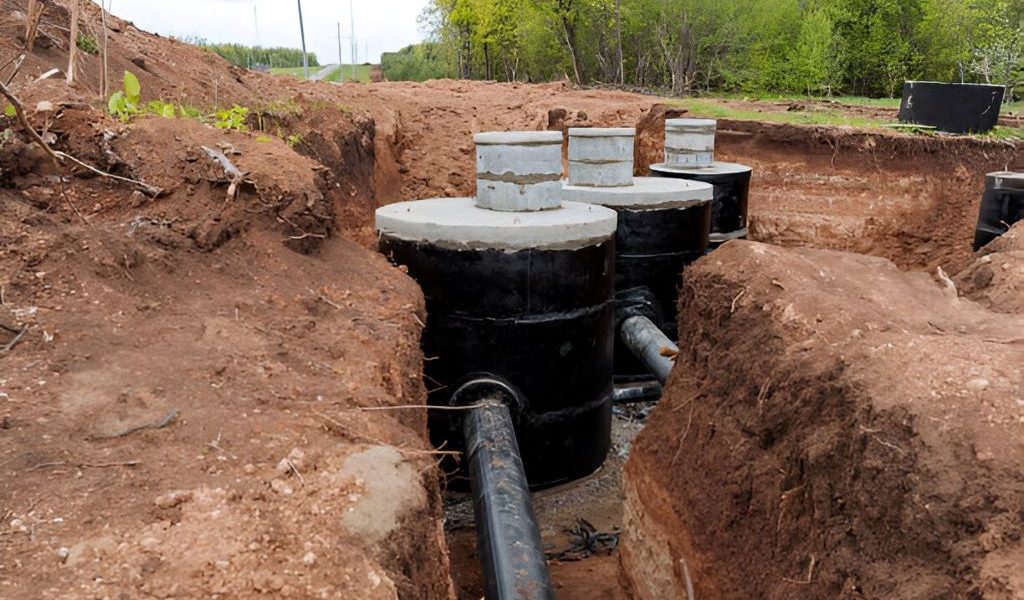Introduction to Septic Systems
Septic systems have long been the backbone of wastewater management in areas not serviced by municipal sewer systems. These self-contained systems are a crucial resource for communities in both residential and rural settings where septic systems manage household waste by filtering it back into the ground. Beyond basic sanitation, they play an integral part in the broader context of sustainable water management. Engaging locally with a professional septic company helps ensure systems run efficiently, thus maintaining personal and environmental health. The importance of such systems is growing as water conservation becomes a pivotal issue worldwide.
How Septic Systems Work
Understanding how septic systems operate is essential to appreciating their role in wastewater management, where centralized systems may not be prevalent, and regular septic tank pumping is crucial for optimal function. A typical septic system comprises a tank, drain, or soil absorption field. Wastewater from households enters the septic tank, where solids settle at the bottom and begin to decompose with the help of beneficial bacteria. This decomposition process is vital as it reduces the total volume of waste. Now, clarified liquid moves to the drain field, a network of perforated pipes allowing water to seep into the surrounding soil. The soil naturally filters the water, making it safe to re-enter the groundwater system. This natural filtration mimics larger wastewater treatment processes on a localized scale.
Benefits of Septic Systems in Water Management
Septic systems offer numerous advantages, both economic and environmental. They are cost-effective alternatives to the centralized sewer systems that require extensive infrastructure and maintenance. For homeowners, septic systems present a reliable option that, when maintained correctly, can last for decades. Importantly, septic systems significantly reduce water pollution, treating wastewater on-site and preventing pollutants from entering our lakes and streams. The EPA has highlighted these systems’ role in safeguarding environmental health by properly managing and filtering household waste before it can impact local ecosystems.
Common Challenges Faced by Septic Systems
Despite their benefits, septic systems can encounter several challenges. System overload is a common issue, typically caused by excessive water usage or unsuitable household materials being flushed into the system. Blockages due to non-biodegradable products, fats, and oils can lead to plumbing issues and eventual system failure. Moreover, improper or irregular maintenance can result in unpleasant odors, system backups, and potential contamination of the local environment. To mitigate these risks, homeowners must understand the possible pitfalls and collaborate with experts when necessary to ensure their system operates smoothly.
Best Practices for Septic System Maintenance
Proper maintenance is the key to a long-lasting septic system. Depending on usage and local guidelines, homeowners should schedule regular inspections and tank pumps every three to five years. Safe chemical usage is also crucial; strong household cleaners and antibacterial products can kill the beneficial bacteria essential for waste decomposition. Managing water usage by spreading out heavy workloads like laundry and avoiding excessive garbage disposals can also help prevent system overload. Adhering to these best practices extends the life of a septic system and maintains its efficiency.
Innovations in Septic Technology
Septic technology has evolved significantly, introducing innovations that improve efficiency and usability. Advanced treatment methods incorporating bio-filters and aerobic systems are becoming more common, providing enhanced waste processing capabilities. Integrating innovative technology and IoT devices offers unprecedented opportunities for real-time monitoring and maintenance alerts, ensuring issues are tackled before they escalate. As highlighted in a ScienceDirect article, this move towards intelligent systems is a promising development that could revolutionize how wastewater is managed in decentralized settings, leading to more innovative and sustainable solutions.
Septic Systems and Environmental Impact
Septic systems have a lower environmental footprint compared to municipal sewage systems. They significantly reduce water pollution and are crucial for conserving natural resources. By processing waste near its source, they minimize the risk of environmental hazards associated with central systems, such as pipeline leaks or overflow during heavy rainfall. In an era where environmental issues are at the forefront, the benefits of properly maintained septic systems cannot be overstated. They represent a practical, eco-friendly solution in the movement towards sustainable living.
Conclusion: The Future of Septic Systems in Water Management
The future of septic systems in sustainable water management is promising. As awareness grows and technology advances, these systems will likely play an increasingly vital role in managing wastewater. With innovations focusing on improving efficiency and user-friendliness, septic systems will continue to offer a viable and environmentally responsible alternative to centralized waste management systems. By embracing these changes, we can ensure that septic systems contribute to a more sustainable world.









